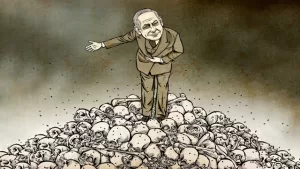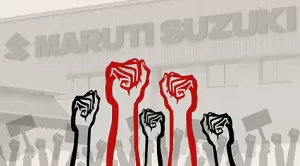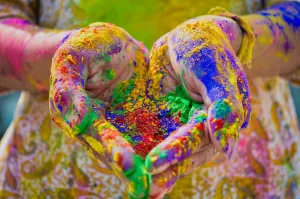✫✫✫
We All Owe Our Lives to Hiroshima Survivors
Beatrice Fihn
It is very likely that humanity would not exist if not for the Hibakusha—those who survived, 75 years ago this week, the nuclear destruction of Hiroshima, and Nagasaki three days later.
That may seem like an overstatement but with tremendous courage and little fanfare the only people who have experienced nuclear war made it their mission to ensure no others would. They defied stigma at home and US government efforts to keep them and their horrifying first-hand witness hidden. They came forward and transformed ‘Hibakusha‘ from a mark of shame to a nuclear-scarred badge of courage.
They are the guardians of one of the worst events humankind has visited on our own people—one of the greatest war crimes in history. They have experienced the predictable result of a dangerous instinct that divides us, one that has been in stark relief in 2020: the belief that some life is worth less than others.
They have been the world’s protector against nuclear war through the strength of their voices and their unwavering commitment to bear witness and tell their stories. Beyond nuclear weapons, they have been champions for justice lending their voices and moral authority to countless causes including the Civil Rights Movement and women’s rights.
Racism and a colonial mindset are at the heart of this. To break that belief, to combat the “othering” of humans is our path to justice. And in this global struggle the Hibakusha have brought the most powerful weapon to bear: their humanity. Their patient and emotionally draining acts of testimony force any listener to understand the suffering of nuclear weapons is not compatible with humanity. No human deserves what they endured.
Nine countries continue to hold this catastrophic threat over us all. In fact, they are engaged in building a new generation of nuclear weapons meant to last another 75 years and cost trillions of dollars.
The Hibakusha have kept those leaders’ worst instincts at bay. For seven decades the words, spirit and activism of the Hibakusha and those they inspired has turned the tide against the bomb.
They were at the forefront of the Ban the Bomb movement along with campaigners from across the world. They worked behind the scenes and stood in the halls of power to support key treaties to stop nuclear testing and curtail the spread of nuclear weapons. They led a million of their fellow activists marching to stop the reckless stockpiling of nuclear weapons in the 1980s. They were instrumental in achieving the treaty that bans nuclear weapons, which will soon become international law.
Setsuko Thurlow sat inside the United Nations Headquarters in the summer of 2017 advocating for that treaty. She was a teenager when the atomic bomb burned through her beloved home of Hiroshima. She spoke with a fierceness and directness at the UN, her voice rising and drawing you in with authority as she shared her story. So many times she shared that story and on that July day her testimony turned to sweeping action as 122 nations voted to adopt the Treaty on the Prohibition of Nuclear Weapons.
40 nations are already states parties to the Treaty and 42 more have started their path to ratification. When just ten of them complete the process, the ban of nuclear weapons will enter into legal effect. This success has already led financial institutions to divest from nuclear weapons producers and local and regional governments are setting their own anti-nuclear weapons agenda.
For their efforts all of humanity owes the Hibakusha an unpayable debt of gratitude. Every laugh that enlivens your day, the warm embrace of your children, a majestic sunset you see, a human connection you make — all this is only possible because the Hibakusha stood in your corner, carried their pain and trauma and relived their worst day over and over and over again. They would not let us forget.
To them we must all say, “Thank you. Arigatou.”
But as less and less Hibakusha are left with us they do not simply want our ‘thanks.’ They have shown us the kind of brave action we will need to win their struggle against nuclear weapons. We must close this chapter of history through all nations joining and implementing the Treaty on the Prohibition of Nuclear Weapons.
75 years ago was the dawn of the nuclear age. We must end this long day of terror. We have the moral authority. Now we need leaders willing to meet to the moment.
That is the thanks the Hibakusha deserve. It is how we honour them. We must rise to their legacy.
(Beatrice Fihn is Executive Director of ICAN, Winners of the 2017 Nobel Peace Prize.)
✫✫✫
‘To My Last Breath’: Survivors Fight for Memory of Hiroshima and Nagasaki
Justin McCurry
As they mark 75 years since their cities were destroyed in an instant, the ageing men and women who bore witness to the atomic bombings of Hiroshima and Nagasaki are struggling to remind the world of the horror of nuclear weapons.
Keiko Ogura was eight years old when the Enola Gay, a US B-29 bomber, dropped a 16-kilotonne nuclear bomb on Hiroshima at 8.15 am on 6 August 1945.
An estimated 80,000 of the city’s 350,000 people were killed instantly; by the end of the year, the death toll would rise to 140,000 as survivors succumbed to injuries or illnesses connected to their exposure to radiation.
Ogura, who was playing outside her home when the force of the blast swept her off her feet and knocked her unconscious, is one of a dwindling number of survivors who have made it their life’s work to tell their story. They hope, with increasing desperation, for a world without nuclear weapons.
“My father had said that something didn’t feel right that morning and told me not to go to school,” she said. The blast ripped the roof off the house she shared with her parents and two brothers, and destroyed much of the interior. But they had survived. “It was dark and there was absolute silence. I didn’t know what to do except crouch on the ground. All I could hear was the sound of my little brother crying.”
As evening fell, people who had been closer to the hypocentre a mile and a half away started arriving at their home. “They had badly burned faces and hair, and their skin was hanging off. They said nothing … they just moaned and asked for water.”
Ogura gave water she had fetched from a well to two people and watched in horror as they drank but then collapsed and died. “I didn’t know that it was dangerous to give water to people in their condition. For 10 years I blamed myself for their deaths.”
Ogura is one of an estimated 136,700 remaining hibakusha – survivors of the atomic bombings – from Hiroshima and Nagasaki, including those who were in the womb at the time of the attacks. With an average age of just over 83, many suffer from chronic illnesses linked to their exposure to radiation.
More than 300,000 survivors have died since the attacks, including 9,254 in the past year, according to the health ministry.
A recent survey by Kyodo news agency found that more than three-quarters of survivors were “struggling” to pass on their experiences, with many citing their advanced age. Only a fifth said they planned to continue sharing their stories.
Those like Ogura who have spent years talking to audiences in Japan and overseas, are frustrated by the lack of progress on nuclear disarmament, and fearful of a future without hibakusha testimony.
“In the beginning, it was really painful to remember those days,” said Ogura, who did not speak publicly about her experience for 40 years. “But I wanted young Americans to know what their country had done. I’m not blaming them for what happened, I just want them to know the facts, and think.”
Although he was only five at the time, Sueichi Kido recalls hearing the engine of the Bockscar, the American B-29 bomber that dropped a plutonium bomb on Nagasaki on 9 August, killing 74,000 people. “I remember someone saying that it didn’t sound like a Japanese plane … then there was a flash and a boom,” he told the Guardian.
“There are things I remember very clearly about that morning and things I have no recollection of,” said Kido, a retired college teacher who, at 80, still serves as secretary general of Nihon Hidankyo, an organisation that represents survivors of both atomic bombings.
He was standing in front of his house a mile and a quarter from the hypocentre when the blast sent him flying through the air. His mother, who was standing nearby, was badly burned on her face and chest. “There was nothing left of our neighbourhood,” he said. “Everywhere was black. I remember seeing charred bodies floating in the river.”
Six days later, Kido, his seven siblings and their parents sat around a wireless listening, for the first time, to the voice of their wartime emperor, Hirohito. “We didn’t really understand what he was saying, only that Japan had lost the war.”
This weekend, he will make his annual pilgrimage to Nagasaki from his home in central Japan, where he has lived for the past 40 years. “There are not many of us left. Our time is coming to an end, and we all have to face up to that. But I will spend the rest of my life doing my best to make sure that I am part of the very last generation of hibakusha.”
Kido’s determination is shared by Ogura, whose battle against survivor guilt has now been replaced by one against time.
“People like me wondered why they had lived when so many others had died,” she said. “I could never forget the two people who died in front of my eyes. But I will keep talking about what happened until my last breath, so that they and the other victims did not die in vain.”
(Justin McCurry is the Guardian’s Tokyo correspondent. Article courtesy: The Guardian)




